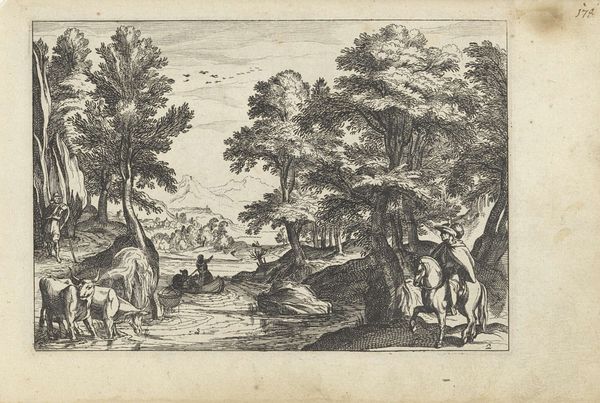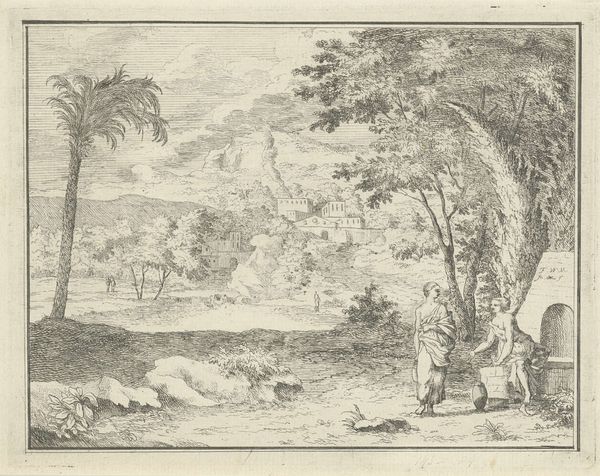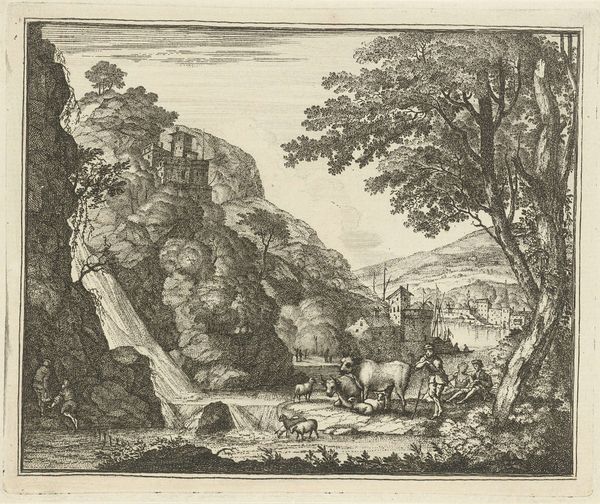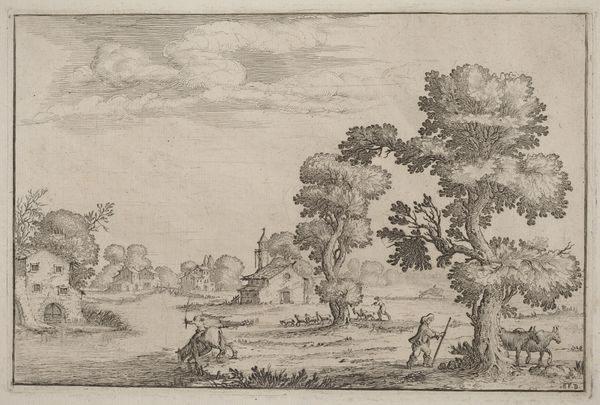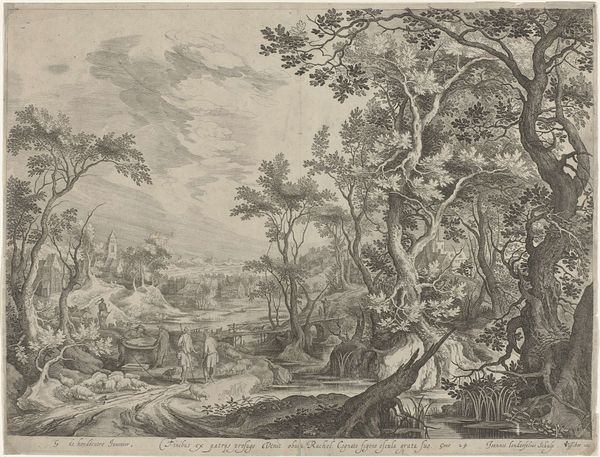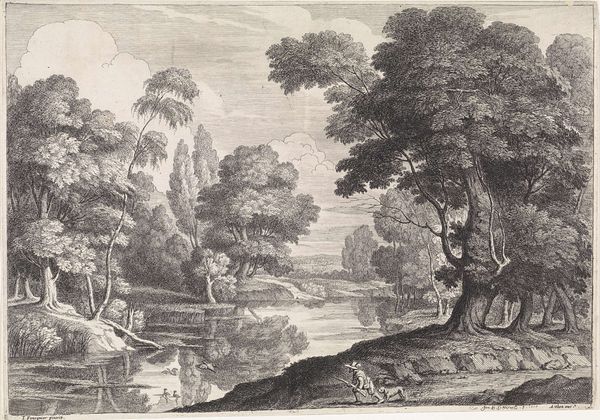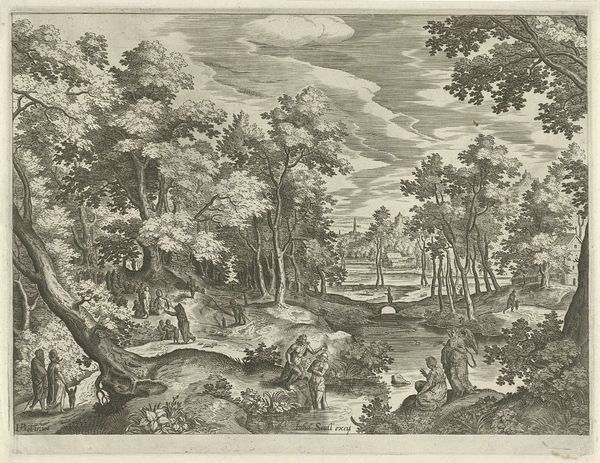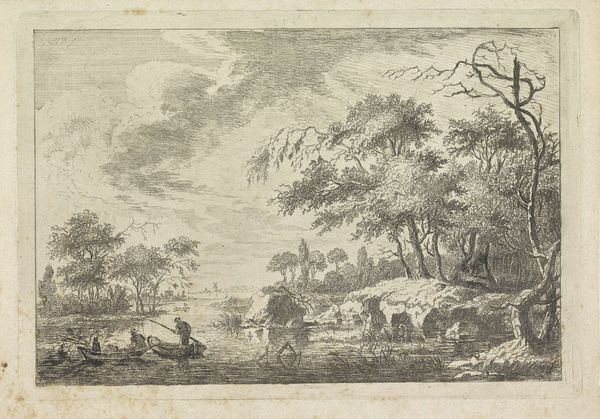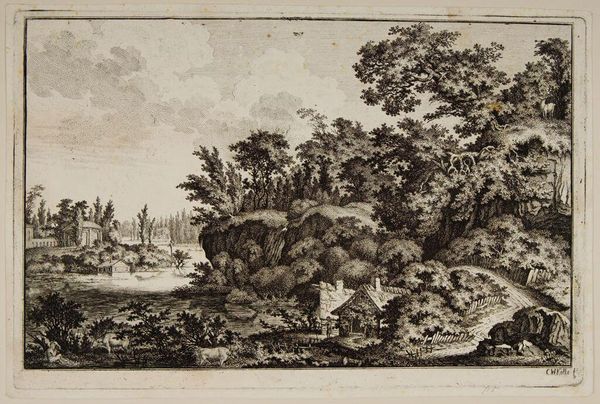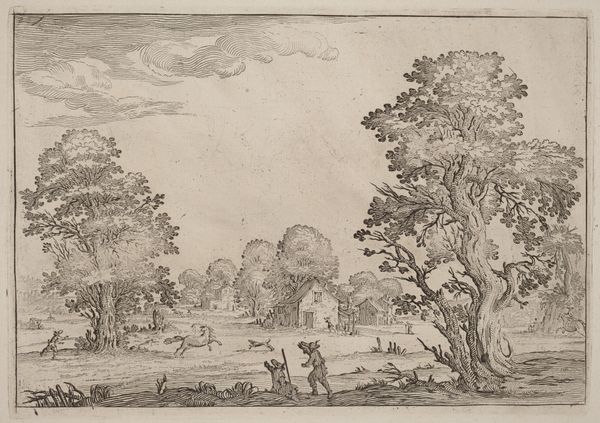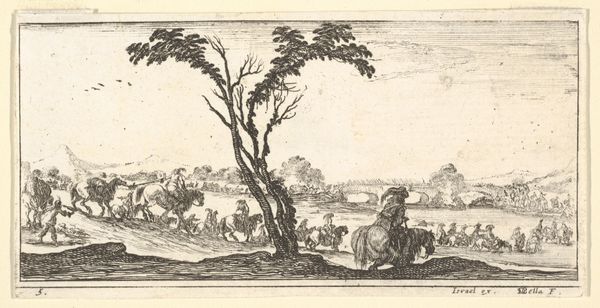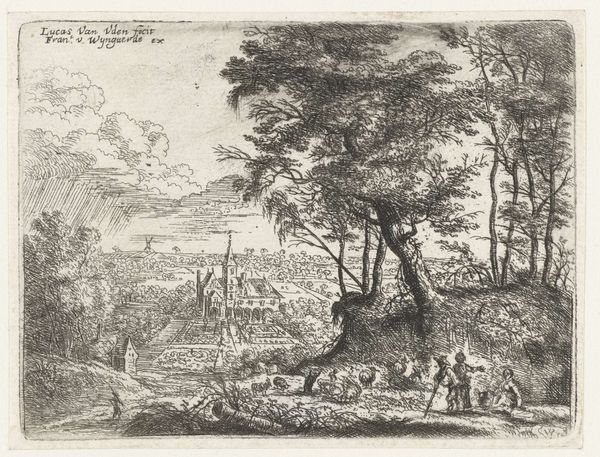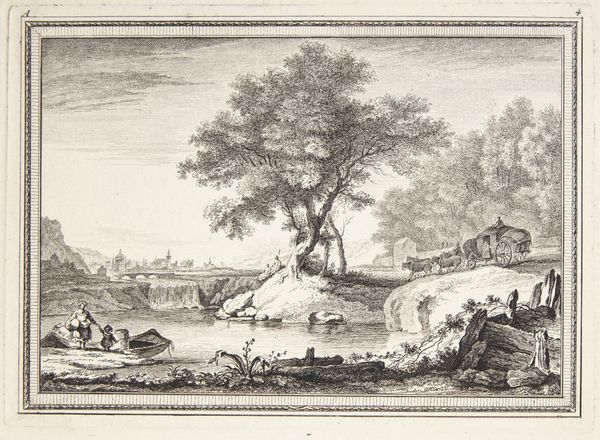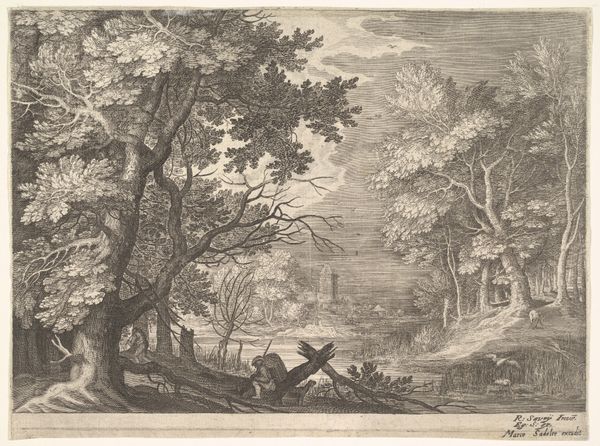
etching
#
aged paper
#
toned paper
#
baroque
#
pen sketch
#
etching
#
pencil sketch
#
sketch book
#
landscape
#
figuration
#
personal sketchbook
#
pen-ink sketch
#
pen work
#
sketchbook drawing
#
genre-painting
#
nude
#
sketchbook art
Dimensions: height 123 mm, width 148 mm
Copyright: Rijks Museum: Open Domain
Curator: Gerard Melder's etching, "River Landscape with Anglers by a Statue of Venus," likely created between 1703 and 1754, presents an intriguing scene. Editor: My first impression is of a tranquil, almost idyllic, scene disturbed by an odd focal point. The stark white Venus clashes a bit with the rest of the natural scene's darker shades, doesn’t it? Curator: That stark contrast is quite deliberate, I think. Consider the formal elements at play here. The sharp lines of the statue juxtaposed against the softer, more organic forms of the trees and figures. The composition directs the eye to that central, idealized form. It's a study in contrasts, no? Editor: Symbolically, though, what does that clash communicate? We have this pagan deity looming over genre figures engaged in common activities like fishing. Is it meant to juxtapose the idealized with the mundane? The earthly and the divine? Curator: Precisely! Venus, traditionally, represents love, beauty, and fertility. Her presence elevates the everyday to a timeless scene, reflecting the enduring influence of classical ideals, but observe the delicate etching, each careful crosshatch. Editor: Yes, and I notice how the statue seems to preside over the figures, almost judging their leisurely pursuits. It brings to mind ideas of moralizing landscapes. There's a faint tension there. It speaks to cultural shifts in that era and the uneasy relationship between older, pagan symbolisms and modern life. Curator: A shrewd assessment! One can see that he created layers through lines, building up form with a calculated technique. Even the placement of that stark, bare Venus shifts perspective to consider that very shift in cultural perception. Editor: I leave with a sense of how potent familiar imagery can become, depending on artistic choices. The context, in this instance, re-imagines what this mythological figure means, given the company it keeps. Curator: A masterful use of form and imagery intertwined, showcasing both Melder's skill and the complexities of his era. It causes you to pause and rethink presumed context.
Comments
No comments
Be the first to comment and join the conversation on the ultimate creative platform.
